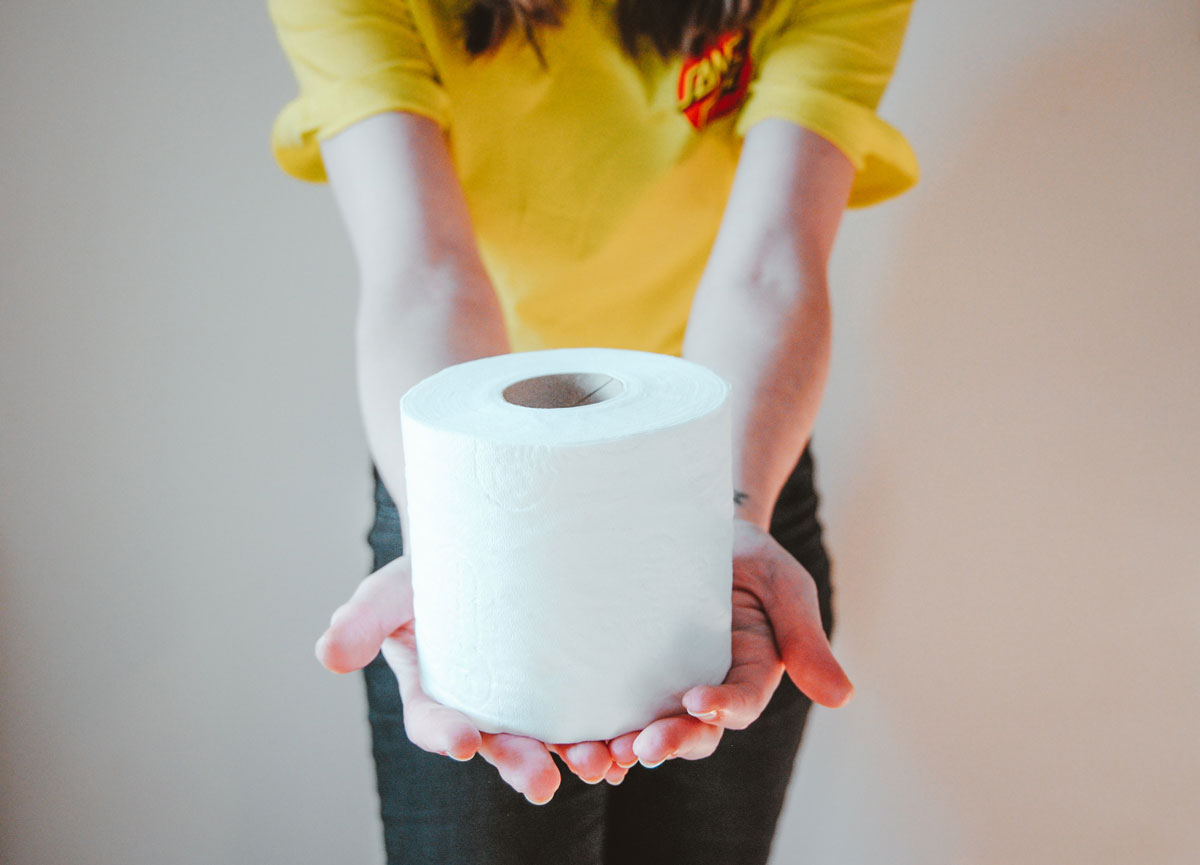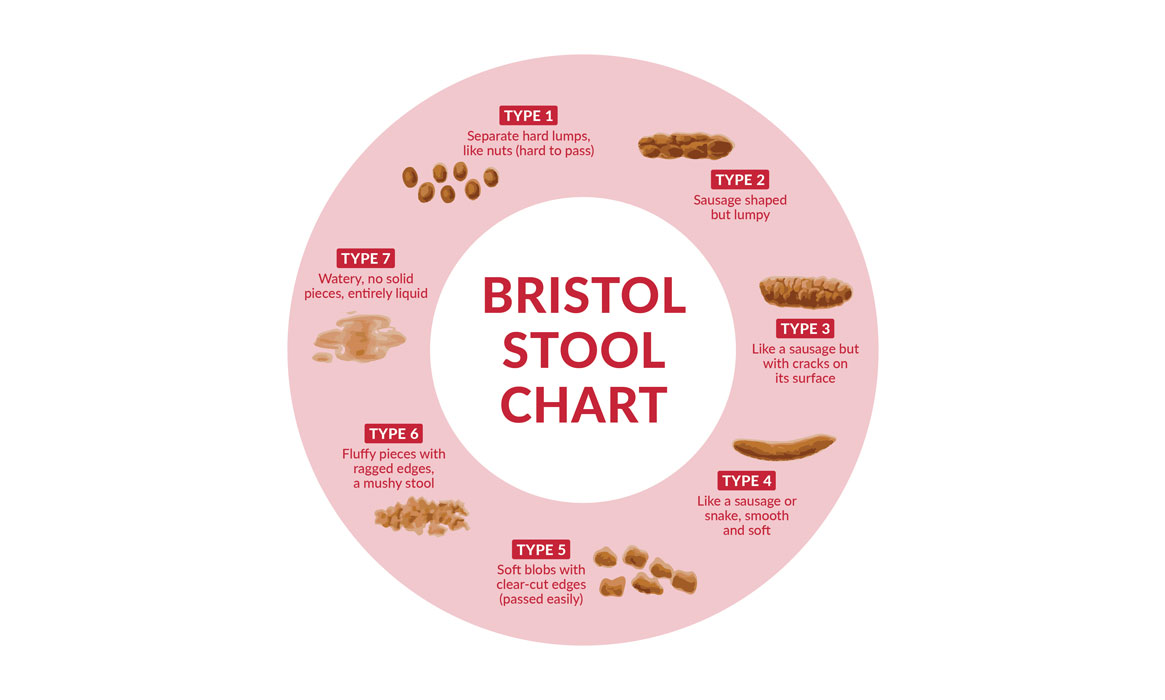Bold bowel talk: How to track & evaluate your transit time

Everyone poops. And healthy poops are more important to our overall wellbeing than you might think. Although getting real about toilet talk might seem embarrassing, it’s the best way to ensure that your digestion is on track. So let’s talk about poop!
Most of us probably don’t analyze our bowel movements until we either have a lack of them (constipation), or too many, too frequently (diarrhea). Or maybe even a combination of the two, which can happen with irritable bowel syndrome (IBS), alongside other uncomfortable symptoms.
We’re going to break down some less than ideal bowel movements, the relationship between bowel movement health and digestive health, and what you can do to have better bowels and overall health.
What’s your poo telling you?
The ideal bowel movement should be light brown, sausage or snake-like in appearance, smooth and soft. It may or may not have cracks on its surface, but it should ultimately be fully formed and in one long piece that comes out easily, without force (type 3 or 4 on the Bristol Stool Chart). This indicates you are consuming enough dietary fibre and your water intake is ideal or close to it!

Leading experts suggest that we should spend no more than 10-15 minutes per bowel movement and that a bowel movement should pass with ease and little to no straining.
To go, or not to go
When it comes to how often we should be eliminating, opinions are mixed. Some say we should produce 2-4 bowel movements per day, while others suggest we should have one 2-4 hours after consuming each meal throughout our day. However, if it normally takes between 12-24 hours to completely eliminate a meal and if you are only producing one bowel movement per day, your colon may need a little help moving things along. This includes drinking more water, consuming more dietary fibre and taking a daily digestive enzyme.
Diarrhea vs. constipation
Diarrhea is a condition where your stools are liquidy, and bowel movements are frequent (anywhere from 2 to over 10 bowel movements per day). It can be caused by a bacterial infection, an enzyme deficiency, or irritation of the colon.
If the small intestine lacks the enzymes needed to break down various sugars from the foods we eat, undigested and unabsorbed sugars remain in the gut. These sugars can attract large volumes of water, causing stools to become more fluid.
Constipation is defined as infrequent or sluggish actions of the bowels that cause stools to sometimes become dry, hard, compact and difficult to pass.
If you want to do a test to determine if you’re constipated, try the beet test. Eat some beets, which will cause your stools to turn red, and see how long it takes for the deep red colour in your bowel movements to completely disappear. If it takes 24 hours or less you have excellent bowel health! If it takes longer than 24 hours, then there may be some degree of constipation present, and it’s time to take some action.
What is irritable bowel syndrome (IBS)?
Irritable bowel syndrome is a functional disorder of digestion that is the result of an interplay of digestive secretions, bacterial flora, and dietary factors. IBS can show up in the form of constipation, diarrhea or a mix of the two with some associated with abdominal pain.
To help address the underlying cause of this syndrome and help you start to feel better, it is best to:
- Increase your intake of dietary fibre
- Increase your intake of filtered water
- Remove any known allergens from your diet and environment
- Eat a balanced diet rich in fruits and vegetables (ex: brussels sprouts, asparagus, broccoli, cauliflower, mushrooms, swiss chard)
- Take a daily digestive enzyme
Healthy poops and overall health: What’s the connection?
Pooping doesn’t just leave you with a feeling of relief, it also helps your body rid itself of toxins that we encounter throughout daily life.
To help your body go, try to drink 8-10 glasses of filtered water per day, as the colon works best when it’s full of water. What your bowel movements look like is also a reflection of your gut health, in addition to how much water you drink (or don’t drink) and how much dietary fibre you consume each day.
What does it mean if my poop is a different colour?
If you happen to be experiencing reddish or black stools (and you haven’t eaten beets recently), it may indicate gastrointestinal bleeding, in which case it would be best to contact your healthcare provider.
The liver releases bile in the digestive process, giving stool its brown colour. If your bowel movements happen to be grey in colour, this could indicate potential liver issues.
If your stool is greasy, yellow and foul-smelling this can indicate that your intestines did not properly digest and absorb fat, in which case digestive enzymes should become your new best friend.
Digestive enzymes enhance and normalize digestion, and help break down protein, carbohydrates, fats, fibre and dairy molecules. They also help in the absorption of nutrients, thereby allowing you to pass better, more comfortable bowel movements.
What can I do to improve my bowel health?
To improve your daily bowel movements and remain healthy, make sure you’re eating enough dietary fibre through 100% whole grain foods, fruits, vegetables, nuts, and seeds. Some examples include:
- Avocados
- Strawberries and raspberries
- Apples
- Broccoli
- Oats
- Almonds
- Chia seeds
Physical exercise is also key! When you choose to engage in physical activity, you decrease the time it takes for food to move through your large intestine. This helps to relieve constipation.
If you’re experiencing bowel issues, try to implement some of these practices into your daily routine and allow yourself to feel the difference. Smooth moves ahead!
Sources
Piedmont
Canadian Digestive Health Foundation
Men’s Health
The Encyclopedia of Natural Medicine






